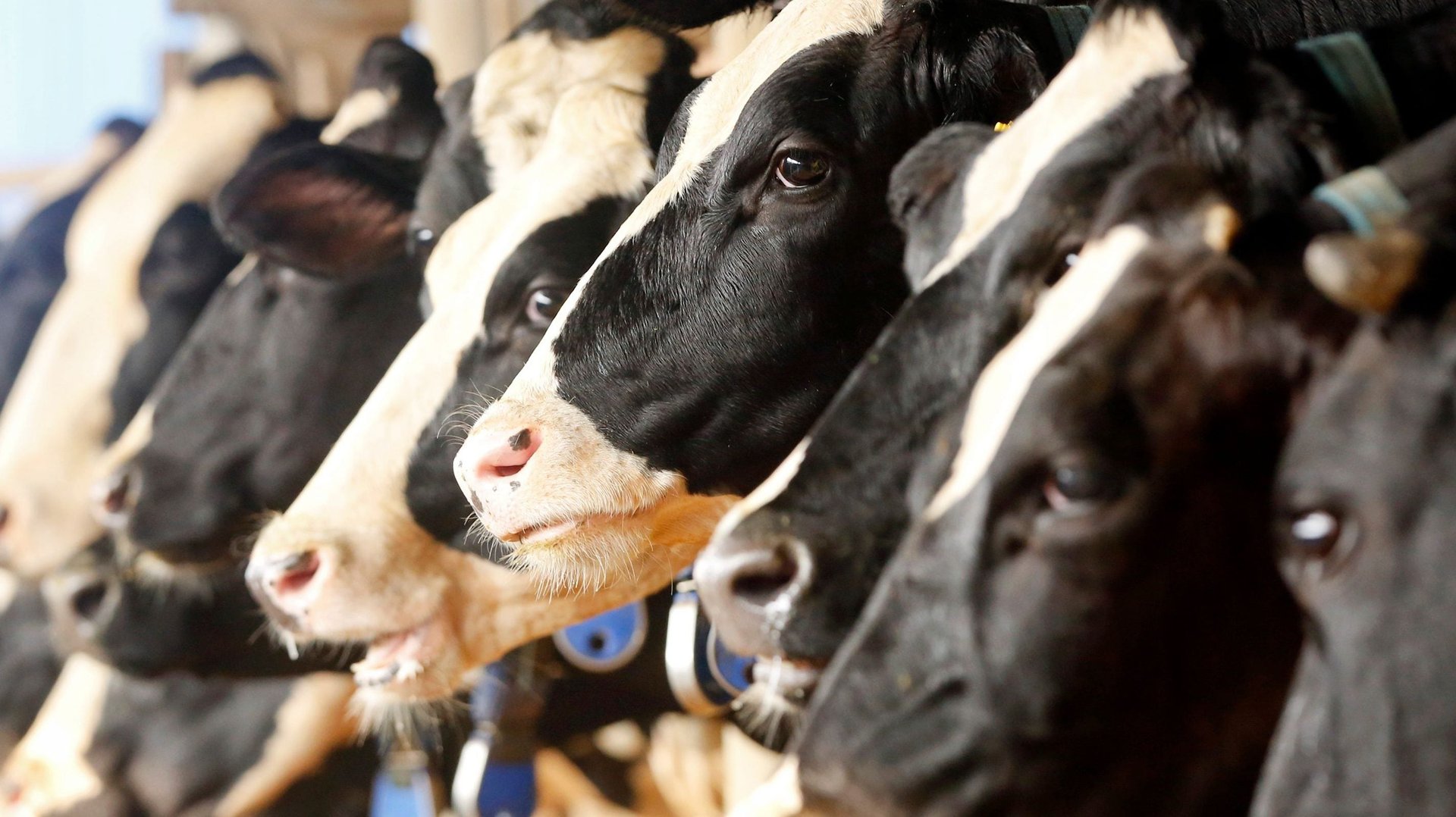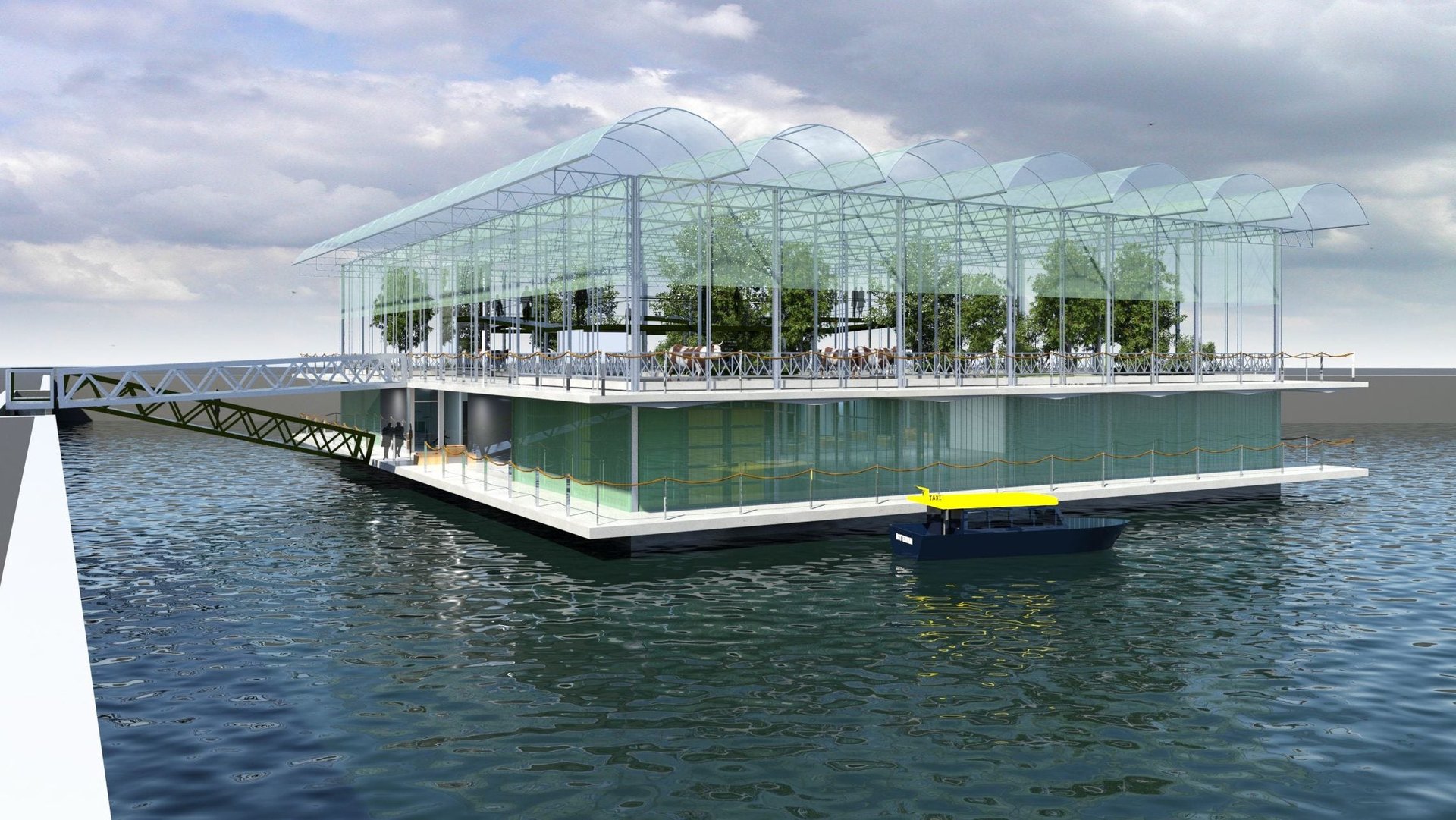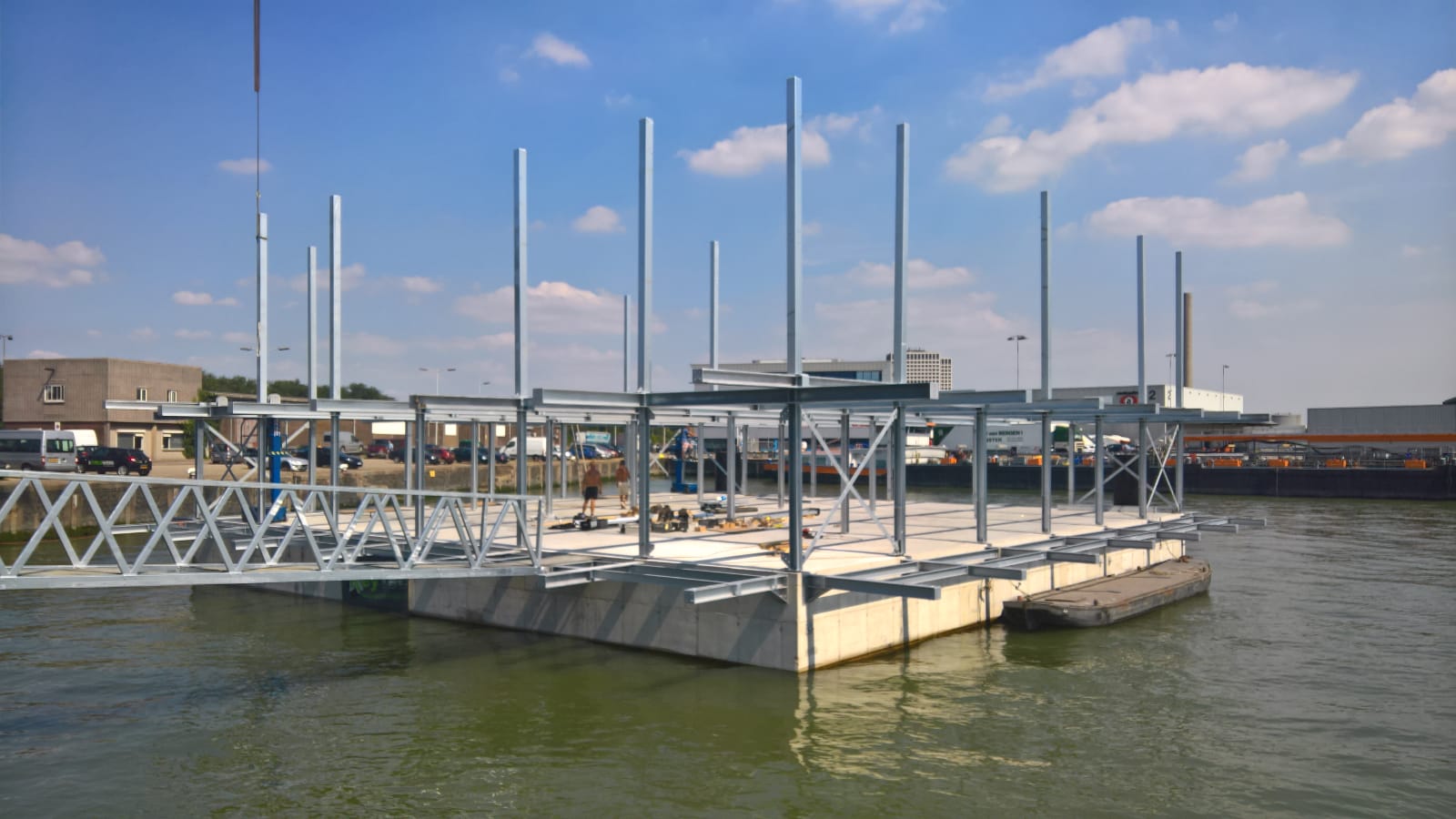A Dutch company is building a floating dairy farm on a river to save space
In the Dutch port city of Rotterdam, near the mouth of the Nieuwe Maas river, a dairy farm is rising. It’s part of the growing trend of urban agriculture, which has put crops on city rooftops and industrial warehouses.


In the Dutch port city of Rotterdam, near the mouth of the Nieuwe Maas river, a dairy farm is rising. It’s part of the growing trend of urban agriculture, which has put crops on city rooftops and industrial warehouses.
The Rotterdam development goes a step further, however. It’s floating on water.
The pioneering project, which should be completed by the end of this year, is an attempt to shrink the distance milk has to travel, and to make cities more self-sufficient. In fact, the idea for it occurred to Peter Beladon, chief executive of his eponymous development firm, during a trip to New York around the time of Hurricane Sandy, in 2012.
“He saw the shelves were empty; there was only food for two days. He thought we had to do things in another way, and the idea came: why not build a floating farm?” Minke van Wingerden, a partner at Beladon, and the CEO’s wife, told the Guardian.

Like other urban farms, this one is vertically oriented, built on a 1,200-square-metre (4,000-square-foot) platform and spread over three levels. When fully operational, the farm should produce about 800 liters (200 gallons) of milk per day.
The top floor will house greenhouses for clover, grass, and other crops that will feed the farm’s 40 cows; the middle level will be the animal’s floating home, a grassy enclosure meant to resemble a natural garden, but populated with artificial trees. The cows will be free to roam in and out of their stalls, and will also have the option to graze on solid ground in an adjacent field they can access via a ramp.
Finally, the bottom floor will contain a processing plant, turning fresh milk into consumer products, including yogurt and, possibly, Comté-style cheese. All of this futuristic food manufacturing will happen behind glass walls, to literally emphasize transparency. School children and consumers will be invited to tour the farm and watch robots milk the cows and pick up their waste, which will be used as fertilizer or converted into energy for on-site use.
Not surprisingly, the first two questions on the farm’s website’s FAQ page are “Is it not bad for animal welfare?” and “Don’t the animals get seasick?” The answer to both is “no,” according to the developers. These bovines will live in sunny, spacious quarters. Since the farm is anchored to the river bed, its platform will only sway a few millimeters, even in bad weather. That’s not enough to cause any distress—hundreds of thousands of cows are transported by ship around the world every year, spending weeks as cargo, they point out.

One of the Dutch farming organizations that collaborated with Beladon says it’s planning to take the same concept to other cities, and is already developing a floating egg farm. Before they move on to chickens, however, they’ll hopefully have solved one current “hiccup,” as Van Wingerden has called it: what to do about that distinct animal farm odor.